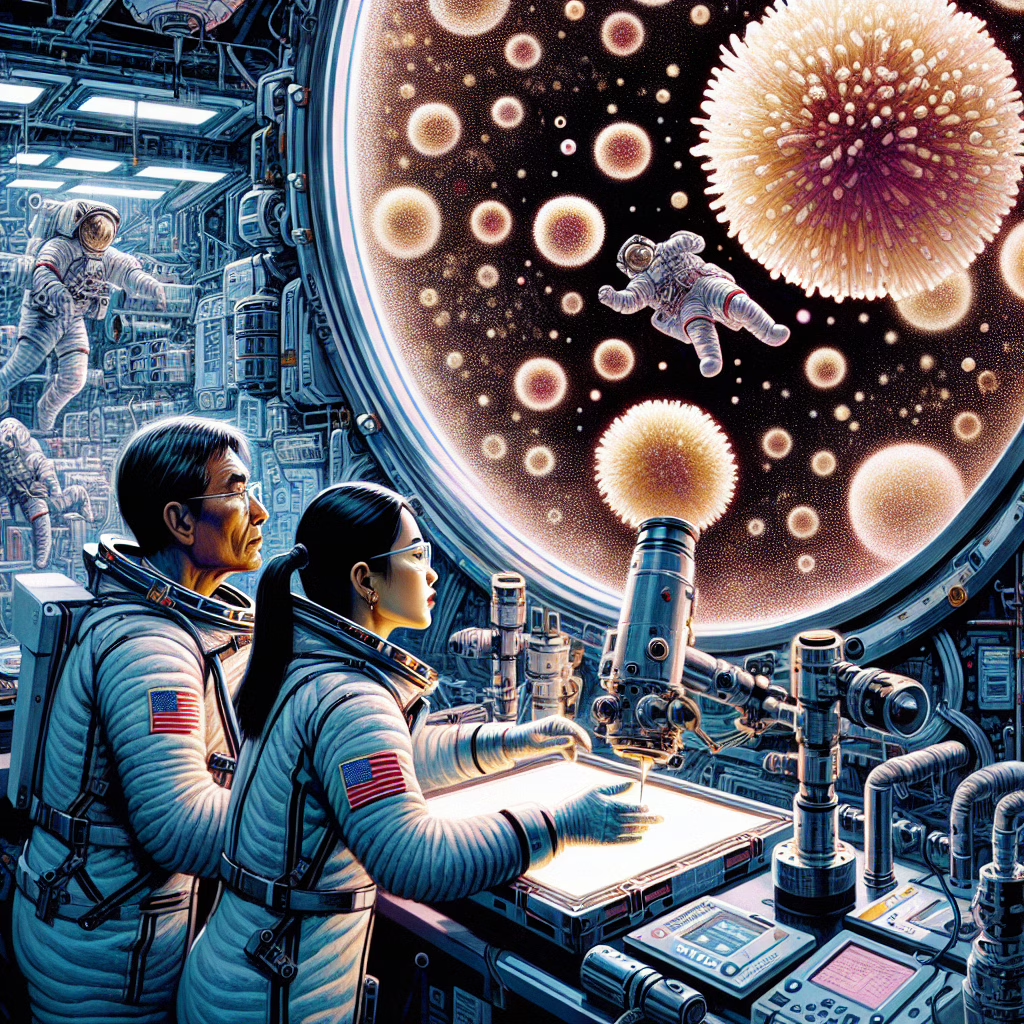In a twist that sounds like a plot from a science fiction movie, scientists have uncovered an unexpected guest aboard the Chinese space station—bacteria previously unknown on Earth! Yes, you read that right. While we humans are busy pondering the mysteries of life, it seems that tiny microbial hitchhikers are busy exploring the cosmos.
The Intriguing Discovery of Bacteria in Space
This fascinating discovery, made during research aboard the Tiangong space station, has sent ripples through the scientific community. Researchers were initially studying how bacteria adapt to microgravity when they stumbled upon this unknown species. It’s as if these bacteria decided they needed a vacation in space, far away from the hustle and bustle of Earth.
Just imagine: while we’re all dealing with traffic jams and email overload, these microorganisms are floating around in zero gravity, thriving in an environment that would make most life forms cringe. Scientists suspect that this newfound bacterial buddy could provide insights into how life might survive beyond our planet. After all, if these bacteria can manage a successful space trip, what else might be out there waiting to be discovered?
What This Means for Space Travel and Life Beyond Earth
Now, you might wonder, why should we care about bacteria in space? Well, dear reader, let’s dive into the implications. The presence of such resilient microorganisms could change our understanding of life as we know it. If bacteria can survive in the harsh conditions of space, it raises questions about the possibilities of extraterrestrial life.
Furthermore, these cosmic microbes might hold clues for future long-duration space missions. Imagine astronauts embarking on journeys to Mars or beyond; understanding how bacteria thrive in microgravity could help us develop better life support systems. We could end up creating onboard ecosystems that sustain both humans and these hardy little organisms!
How Did They Get There?
The big question remains: how did these bacteria end up on the Chinese space station? Some speculate they could have hitchhiked on equipment or supplies sent from Earth. Others suggest they might be remnants of previous missions that took an unexpected detour into deep space.
This scenario raises some amusing images in our minds—perhaps a tiny bacterium packing its bags for a galactic getaway! Regardless of how they arrived, their presence opens up a Pandora’s box of scientific inquiries about contamination and planetary protection. If we’re going to explore new worlds, we need to ensure we don’t accidentally bring along our own microbial stowaways!
The Broader Implications for Science and Society
The discovery also sparks broader discussions about how humanity interacts with space. As we venture further into the cosmos, understanding microbial life is crucial not just for science but also for philosophy and ethics. What does it mean for us as stewards of Earth if we find life elsewhere? How do we balance exploration with respect for other forms of existence?
Moreover, this discovery challenges us to rethink our definitions of life and survival. If these bacteria can endure extreme conditions—from radiation to vacuum—what other forms might exist that we haven’t even imagined? The universe is full of surprises, and it seems like each new discovery just adds more fuel to our curiosity.
Bacteria in Space: A New Frontier
As we ponder this cosmic conundrum, one thing is clear: the journey to understand our universe is just beginning. The bacteria aboard the Chinese space station serve as a reminder that life finds a way—even in places we least expect it.
So next time you hear about interstellar travel or extraterrestrial discoveries, remember these little microorganisms making their mark among the stars. Who knows what other secrets they might hold? Perhaps one day they’ll even share tales of their adventures with us!
Your Thoughts? What are your thoughts on this intergalactic microbiological mystery? Do you believe there’s more out there waiting to be discovered? Share your ideas below!
Thank you to Wired for their original article on this fascinating topic! You can read more about it here.
The Future of Microbial Research
With discoveries like these, the future of microbial research in space is looking bright. Scientists are excited to continue their studies, focusing on the adaptability of bacteria in extraterrestrial environments. These findings could lead to exciting advancements in biomedicine and astrobiology.
- Potential for New Antibiotics: Understanding how these bacteria survive could inspire new pharmaceutical developments.
- Implications for Human Health: Studying space bacteria may lead to breakthroughs in how we conceive health and disease.
- Exploration Strategies: Insights gained could guide future missions to ensure we’re prepared for microbial challenges.
As we look to the stars, the potential applications of space bacteria extend far beyond simple curiosity. Each mission, each discovery, gives us a greater understanding of life itself—whether on Earth or beyond.
In conclusion, the study of bacteria on the Chinese space station signifies a new frontier in our quest for knowledge and understanding of life across the universe.

